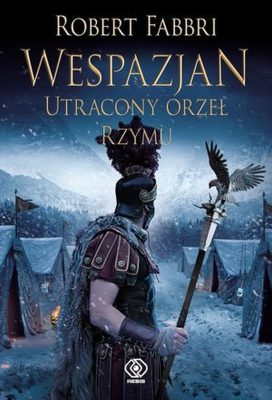The book “Vespasian. Fallen Eagle” is the fourth part of the cycle dedicated to Vespasian, the founder of the Flavian dynasty and the initiator of the construction of the magnificent amphitheater – the Colosseum. The action of volume four begins with the murder of the hated and crazy Caligula. His stuttering and limping uncle, Claudius, is hastily chosen in his place. The title character must find himself in the new political reality and survive again.
Author Robert Fabbri once again takes us into the brutal world of politics and war during the reign of the Julio-Claudian dynasty. The title character of Vespasian, as in the three previous volumes, is subjected to demanding tests of courage and survival. The death of the tyrant and madman Caligula, as it turns out, does not have to bring peace to the Flavian family. Claudius is elected to the throne, who is under the strong influence of his three freedmen advisers: Narcissa, Callistus and Pallas, and his sexoholic and dissolute wife, Messalina. The rivalry on the political scene again enters a decisive phase, and the unsuspecting Claudius becomes a puppet in the hands of the closest environment. Vespasian is entangled in this world of political intrigue thanks to his brother Sabinus, who took part in a plot to kill Caligula. In order to wipe off the stain of killing the emperor, he must, together with Vespasian, find Varus, the legionary eagle lost over thirty years ago, and then participate in Plautius’ invasion of Britain.
As you can see, the plot guarantees fast action and the reader will not get bored. We get to know the life of the wild Germans, the land of Britain mysterious for the Romans, and from a military point of view, we learn how the invasion of the legions on the Island could have proceeded. As the author himself notes, it was the largest offensive in this part of Europe before the invasion of Normandy in 1944. The enormity of the operation is awe-inspiring, especially since the Romans won an amazing victory with much smaller forces than the Britons. Effective in the success of the offensive was, as usual, the famous Roman strategy of “divide and conquer”, which allowed to successfully maneuver between the alliances of the island’s tribes.
For me, the book is a fantastic continuation of the series and guarantees that the author does not slow down. At the end of the book, as usual, the author expertly comments on any inaccuracies in the book and completes the facts and gives the sources he used. It remains only to wait for the next volume of the novel, knowing that there is not much left to the end of the series – the author has predicted seven volumes.

